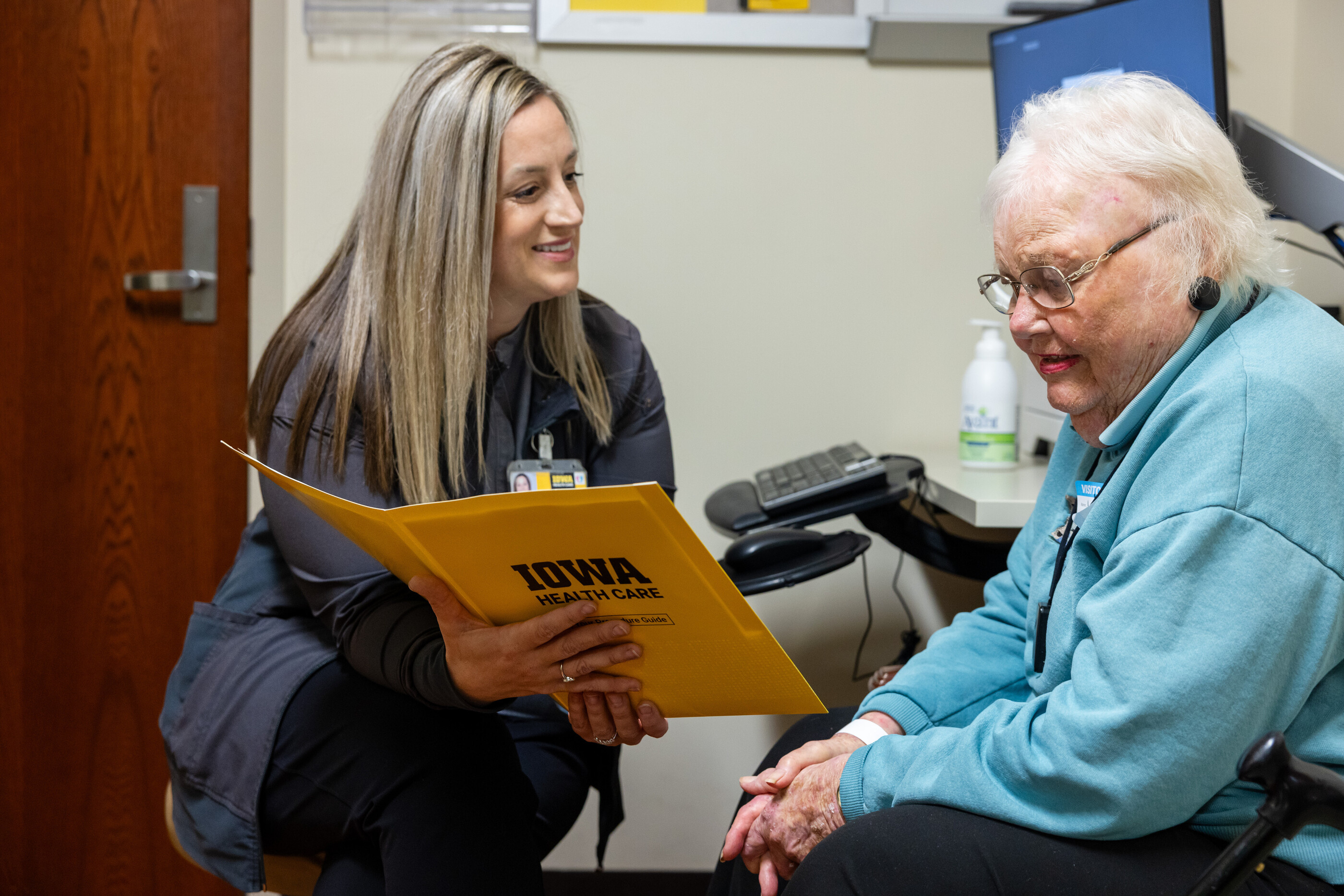
Clinical trials offer access to the latest, most advanced treatments. Understanding how they work and what to expect can help you make an informed decision.
Search for cancer clinical trials
What is a clinical trial?
A clinical trial is a research study that tests new medical treatments, procedures, or devices to determine their safety and effectiveness. These trials are essential for advancing medicine and improving patient care.
Clinical trials happen in phases:
- Phase 1: Tests a new drug or treatment in a small group to determine safety and dosage.
- Phase 2: Expands testing to more participants to evaluate effectiveness and further assess safety.
- Phase 3: Compares the new treatment to existing treatments in a larger population to confirm benefits and monitor side effects.
- Phase 4: Conducted after the treatment is approved to continue monitoring long-term effects.
“The tools we have that are coming into clinical trials are much more modern, like replacing a phone booth with an iPhone.”
“The tools we have that are coming into clinical trials are much more modern, like replacing a phone booth with an iPhone,” says Mark Burkard, MD, PhD, medical oncologist and Director of UI Health Care Holden Comprehensive Cancer Center. “The way we make progress is we make new discoveries, we move them into new treatments and then we bring them into the clinic by doing clinical research to replace the old ideas.”
Why consider participating in a clinical trial?
Joining a clinical trial can offer several potential benefits:
- Access to new treatments before they become widely available.
- Expert medical care from specialists monitoring your progress.
- A chance to contribute to medical research that may help future patients.
However, there are also common concerns. Some patients may fear potential side effects from a drug or treatment being tested. Others may worry about receiving a placebo instead of treatment. A placebo is an inactive medication or other therapy that looks the same—and is given the same way—as the drug or treatment being tested.
“A lot of people say, ‘Well, you might just give me a placebo; why would I want to do that?’” Burkard says. “But our clinical trials are built on a scientific foundation with the best ethical principles behind them. One of those is that we have to give our patients the very best. And if, for example, there are two treatment options: The standard treatment option and something new we think is probably going to be better, then there has to be something we call ‘equipoise,’ which is reasonable, scientific evidence to think the new thing is equal or better to justify that clinical trial. No one has less access to treatment through a clinical trial.”
Is a clinical trial right for you or your loved one?
Deciding to participate in a clinical trial is your decision. Here are some key factors to consider:
Questions to ask yourself and your doctor:
- What is the goal of this trial?
- How does this treatment compare to standard options?
- What are the potential risks and benefits?
- What is required in terms of time, travel, and procedures?
Understanding eligibility criteria
Before joining a clinical trial, you must meet certain criteria, which may include factors like age, medical history, and current health status. Checking these criteria can help determine if a trial is an option.
Assessing risks vs. benefits
While clinical trials are designed to minimize risk, they can involve side effects. It's important to weigh the potential benefits against any known risks.
“People who volunteer to participate in clinical trials are volunteering to participate in research,” Burkard says. “It is truly research, and they need to understand what it is, but we genuinely care for giving the optimal treatment to all of our patients.”
What to expect during a clinical trial
The process from screening to participation
- Eligibility: First, you’ll meet with your doctor, and they will determine if you are maybe eligible for a clinical trial.
- Informed consent: You'll receive detailed information about the study, including risks and your rights as a patient.
- Screening: Doctors review your medical history and perform tests to confirm your eligibility.
- Treatment phase: If you qualify and choose to participate, you'll receive the trial treatment and regular monitoring.
- Follow-up: Even after treatment ends, researchers may check in to assess long-term effects.
Rights and protections for participants
Clinical trials follow strict ethical guidelines. Participants have rights, including the ability to leave a study at any time. Institutional Review Boards (IRBs) oversee trials to protect patient safety.
Possible side effects and how they are managed
All treatments, including those in trials, can have side effects. That’s why clinical trials involve close monitoring, and doctors will intervene if necessary. In fact, patients actually receive more monitoring from their care team in a clinical trial, which allows them to address additional concerns that may come up.
Where to find if you’re eligible for a clinical trial
Is a clinical trial right for you?
Deciding to participate in a clinical trial is a big decision that should be made with careful consideration. Speak with your doctor, ask questions, and make sure you fully understand the risks and benefits. If you do choose to participate, know that you are playing a vital role in advancing medical science.
“We’re 50 years into the war on cancer, and we’re starting to make some really major progress in beating cancer,” Burkard says.
